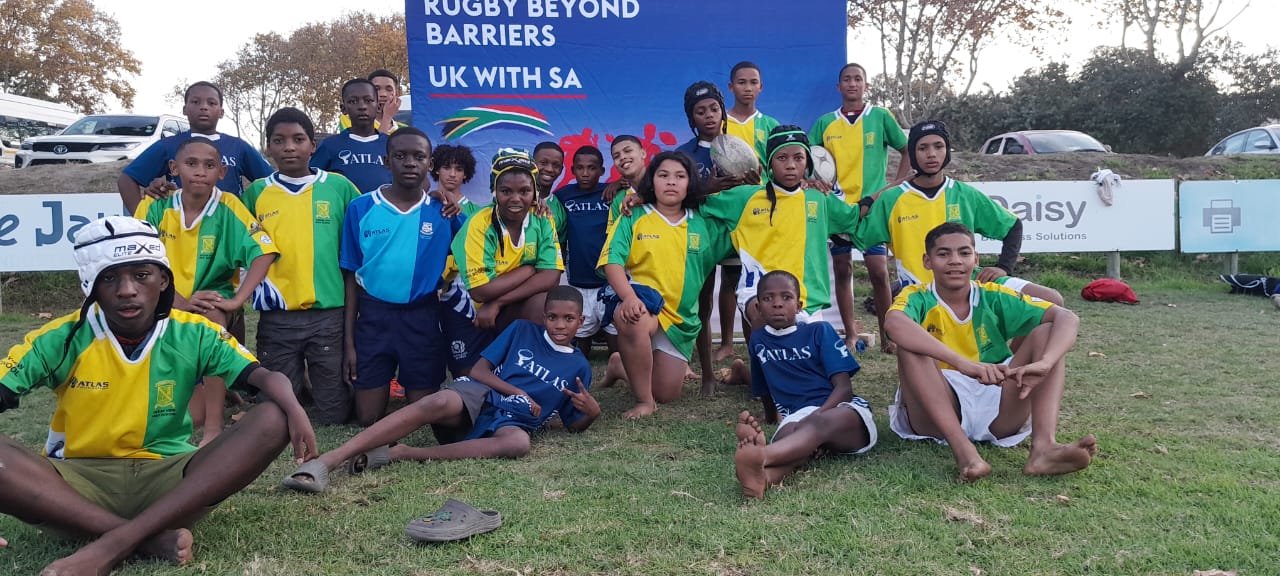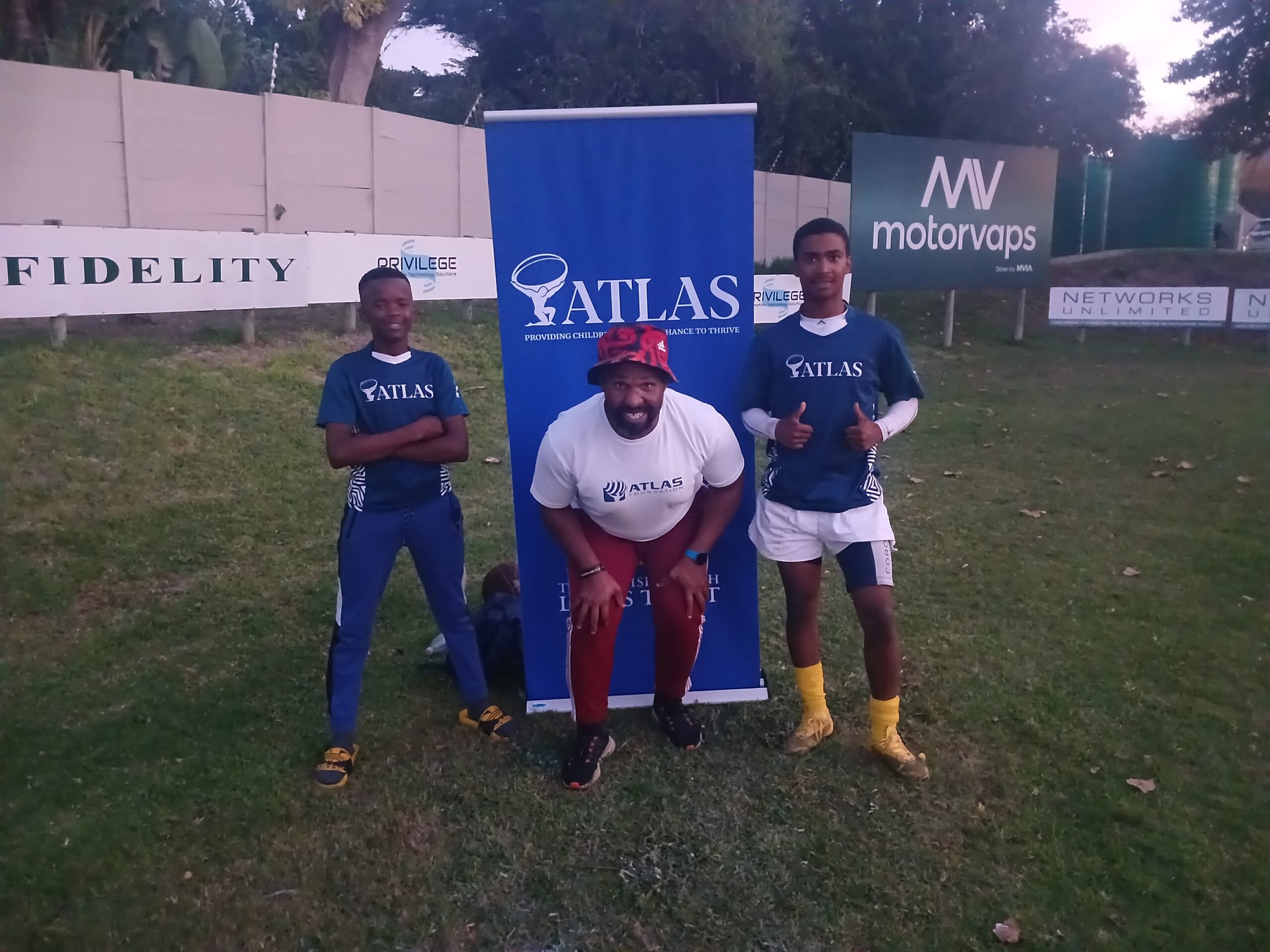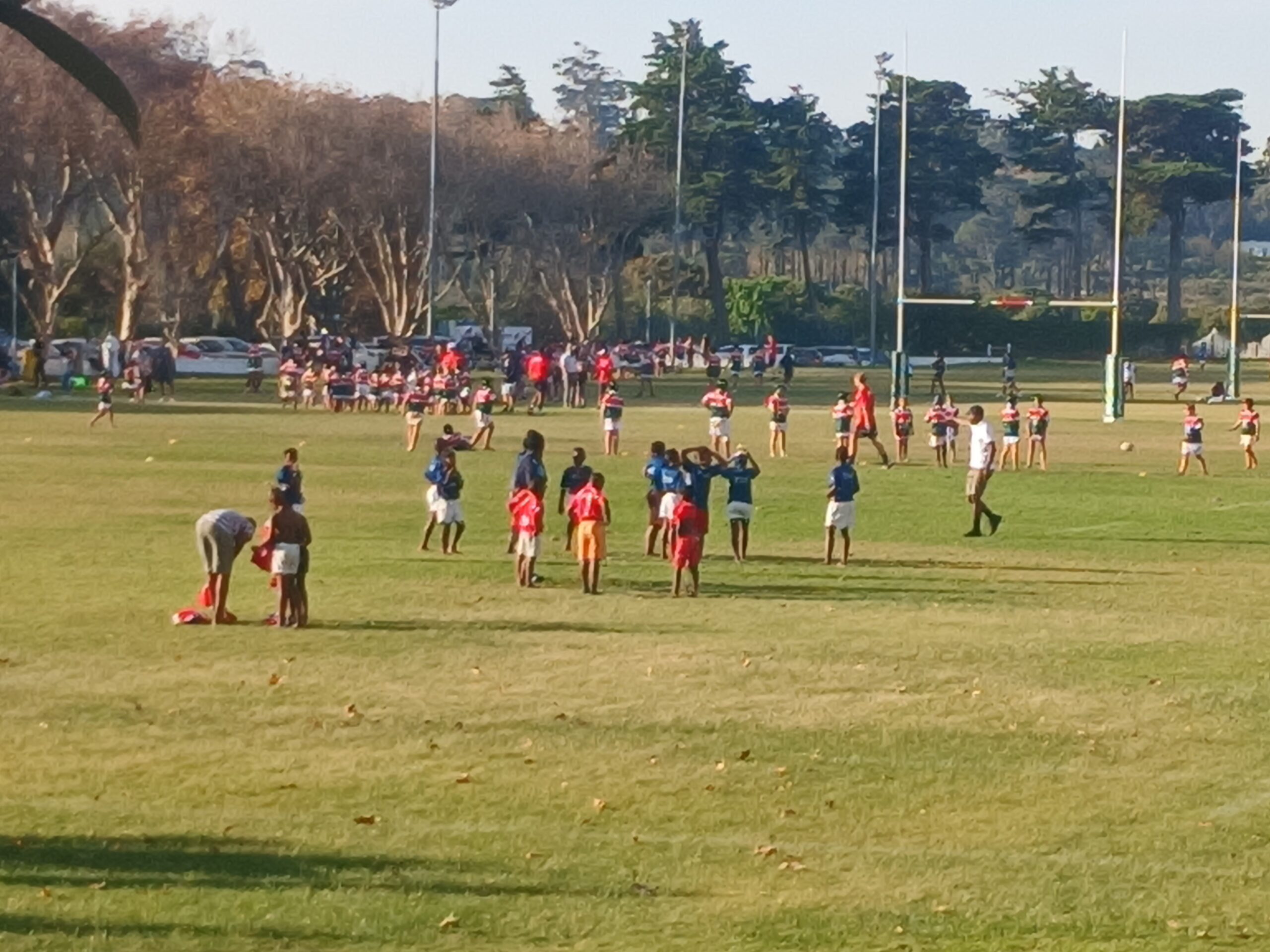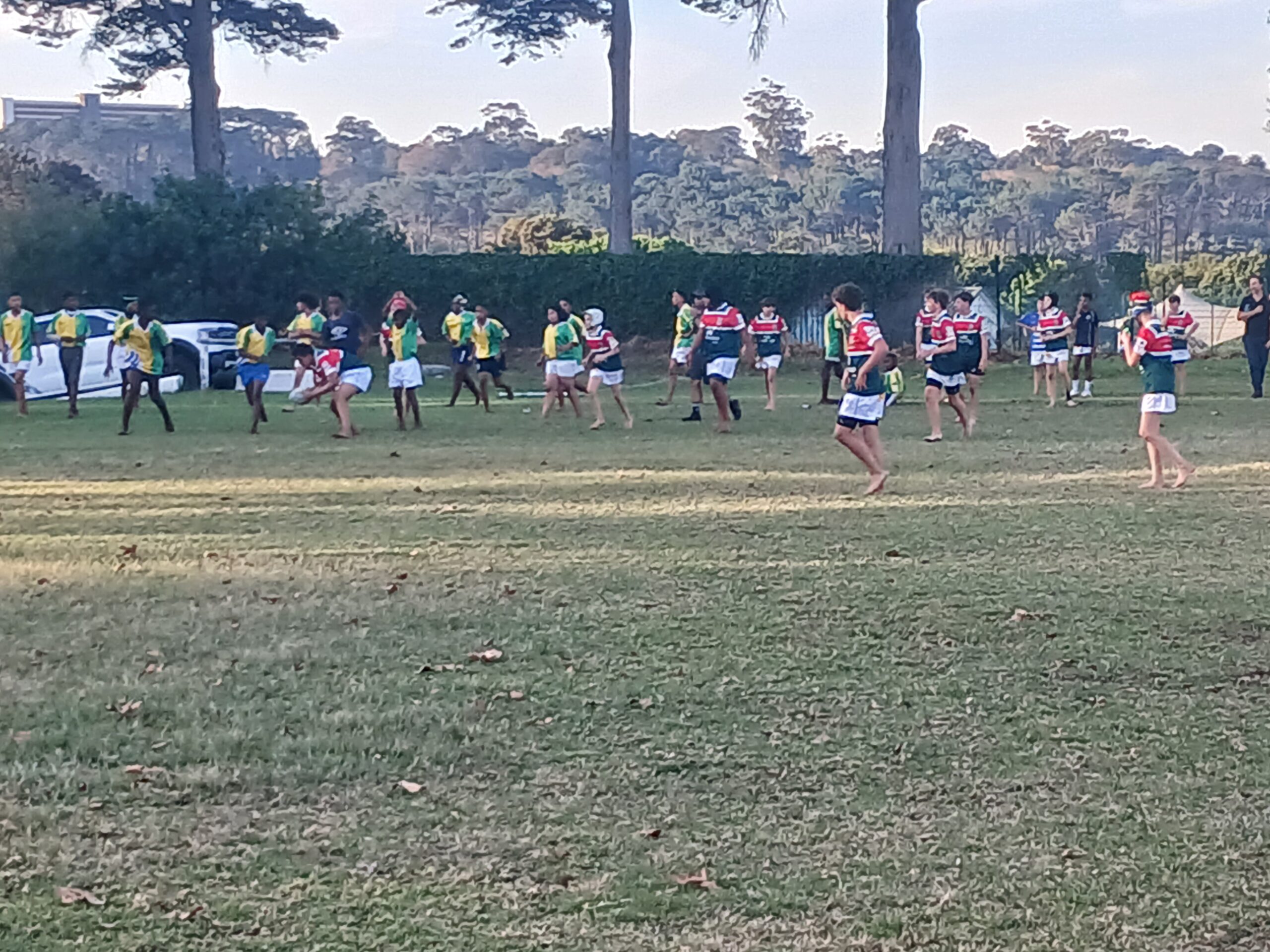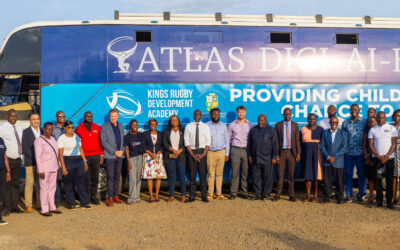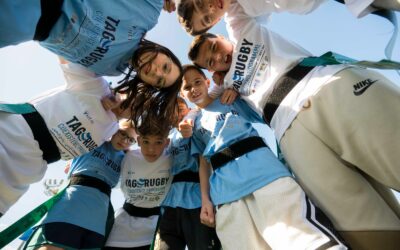Last week, 77 young players from Masiphumelele and Ocean View crossed the mountain from their communities to Constantia for a friendly tournament hosted by the False Bay Rugby Academy. For some, it was their first time leaving their area – an experience that, in Coach Frank Charlie’s words, “exposed children to dream more,” opening their minds to a world of possibility beyond their daily challenges.
The event included teams from U8 to U16, and while the older age groups dominated on the scoreboard, it was the spirit of inclusion, personal growth, and education through sport that truly won the day.
“We needed to align societal goals with rugby,” said Coach Frank. “Our community needs people who are committed to improving the situation, young leaders who can write a new story of hope.”
At The Atlas Foundation, this is exactly why rugby is such a powerful tool – not just to play, but to educate, uplift, and unify. Rugby offers more than a ball and a field – it teaches teamwork, respect, and leadership. “Every pass counts, every tackle and tackle assist count,” Frank explains. “It is also the same in life – we prosper when we help one another.”
The theme of inclusion was evident both on and off the field. Children were encouraged to speak up, share ideas, and support each other – breaking long-held cultural expectations that often prevent young people from township and rural backgrounds from expressing themselves. “They can ask questions now,” Frank said. “That’s traditionally difficult for the children of our background…they always believe that what elders say is correct. There are a lot of good things to be proud about.”
Coach Xolani was commended for his role in developing the younger players, who demonstrated teamwork, enthusiasm, and visible progress on the day. Coach Frank also highlighted one 16-year-old player who, despite personal challenges with anger, selflessly helped coach younger players before playing in his own match – proof that rugby is becoming a tool for emotional regulation and personal transformation.
“Mentoring young children is great,” said Frank. “We’ve seen improvement in terms of their self-confidence. They believe in themselves – they can play anyone, anywhere.”
Coach Frank with two Atlas players
The educational impact of rugby was powerfully clear. These young players are not only learning tactics and drills but discovering new ways to think, behave, and aspire. Exposure to new places and people – like this visit to Constantia – is perhaps the most powerful lesson of all.
“Exposure is the greatest form of education. Mentally, it gives a child a different idea, and they’re able to dream bigger.”
True to The Atlas Foundation’s mission, this initiative also supported health and wellbeing. Children were provided with snacks and juice after the games, and transportation was arranged to ensure they could attend – a cost of over R5000 for this event alone, reflecting the ongoing investment needed to deliver inclusive opportunities.
More important than the scoreline was the feedback from spectators, who commended how well-organised and respectful the Atlas children were – both on and off the field. They played as teams, carried themselves with pride, and represented the strength of their communities with honour.
It tournament was a day of transformation – every child took a step toward a healthier, more inclusive, and more hopeful future.

